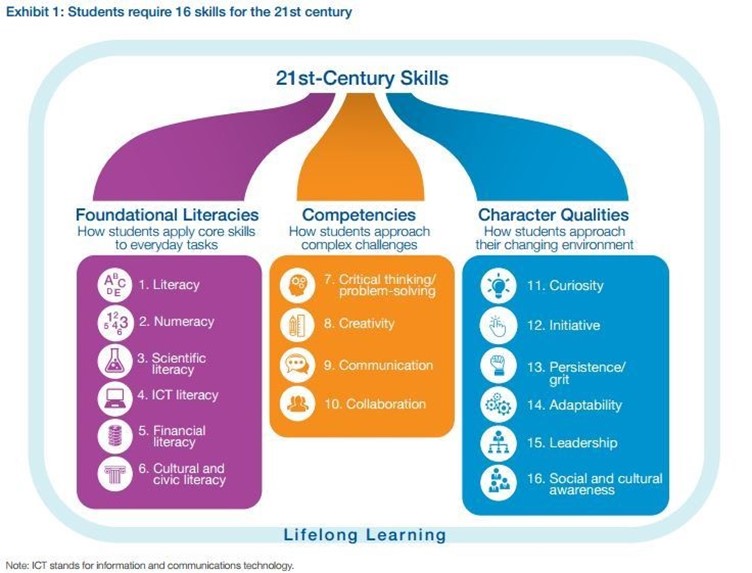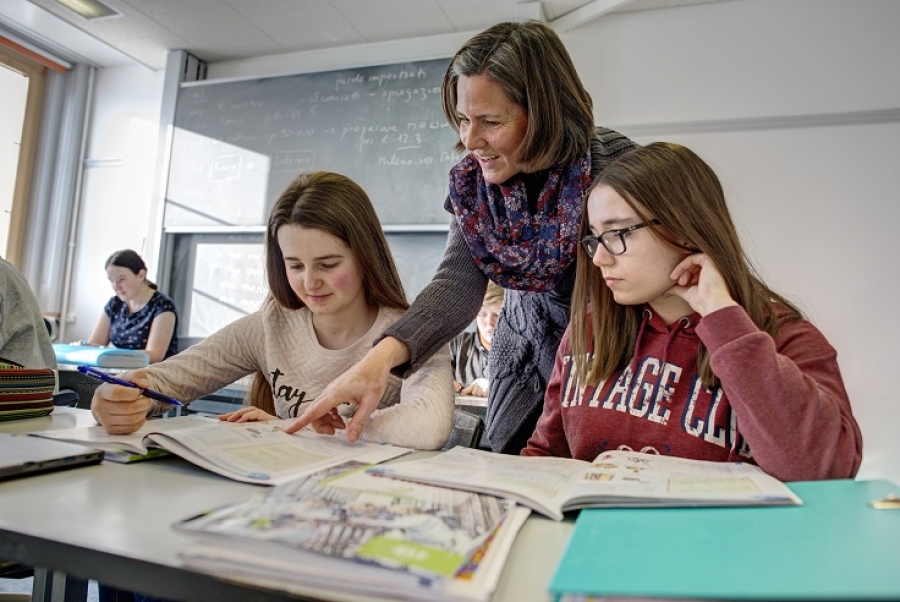A True artisan and artist
It is an ancient art, requiring creative vision, empathy and the ability to respond intuitively to events in the classroom. Like any true artisan and artist, teachers have to continuously hone these skills and to be sources of inspiring visions. They cannot rely on what they learned in the past to prepare young people for the future. Teachers at HIF are currently exploring new pathways to making learning not only more memorable for students but also better aligned with the journey into the unknown, which is the shape-shifting world of the 21st century.
What do we teach in the 21st Century?
First of all there is the Big Question: what should teachers be teaching? The World Economic Forum carried out an analysis of 213 studies and came up with the conclusion: “The gap between the skills people learn and the skills people need is becoming more obvious, as traditional learning falls short of equipping students with the knowledge they need to thrive.”(1)

Image: World Economic Forum, New Vision for Education (2015)
THE WEF LIST OF SKILLS
However, I do believe that the “what” in the question “What did you learn at school today?” will long remain at the heart of what teachers do in the classroom: promote the acquisition of knowledge about the world. And I do believe, there will always be a place for teachers explaining, demonstrating and telling stories but so-called teacher-led instruction or Frontalunterricht are no longer adequate to the task of preparing youngsters for tomorrow’s world. Neither are they to the challenges facing employers, research institutes, and the environment. Of course, expert knowledge is called for, but just as much for self-motivating, open-minded young people able to think critically and independently. A generation able to work in multi-national teams, to communicate effectively in two or more languages, and to integrate digital know-how into their professional and private lives.
Teaching for 21st Century Skills, therefore, calls for a shift in emphasis from the “what” towards the “how” of learning. Along with it, a new understanding has emerged of the role of the teacher. This paradigm shiftless of an instructor, more of coach - and its implications for the work we do as teachers is the topic of a series of three workshops at HIF led by Kate Beatty, an internationally experienced teacher trainer.
A major aim of our work is to raise awareness among our students of the range of inter-connected skills and processes involved in learning. We want them to understand how real learning takes place and also, most importantly, that they can improve their effectiveness as learners by engaging actively with subjects and topics in a variety of ways.
The HIF Vision and Mission Statements provide our two points of reference. They raise questions such as how in practical, classroom ways can we “promote open-mindedness, critical thinking, self-directed research and teamwork through teaching and learning with a local, national and international outlook”? How do we plan these learning goals into our planning? Finally, what do we understand by “the knowledge” and “the intellectual skills” that students need for their academic and professional careers?
Just as importantly, students should also be able to answer these same questions. In this regard, therefore, students learn the language of learning, that is, terms such as “reflection”, “critical thinking”, collaboration” and their role in the process of learning. Simply telling a student to put effort into studying is not likely to make much of a difference. The student has to know that the activities they are doing will support their learning.
[1] https://www.weforum.org/agenda/2016/03/21st-century-skills-future-jobs-students

